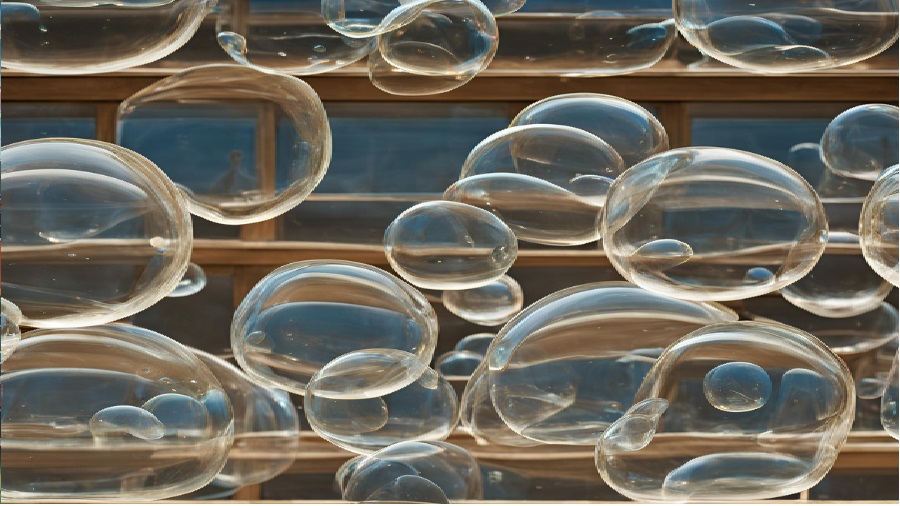- Opinion
- 16 de January de 2025
- No Comment
- 6 minutes read
The School as a Factory of Crystal Bubbles

The School as a Factory of Crystal Bubbles


Spanish philosopher Montserrat Nebrera refers to young people born after 2000, particularly those born from 2010 onwards, as the “snowflake generation.” This description portrays a youth excessively sensitive, fragile, and brittle—prone to breaking at the slightest pressure. These young people live in a cocoon of cotton clouds, surrounded by the aroma of ultra-processed sugars, entirely incompatible with criticism, frustration, and, ultimately, reality itself.
In this world where “everything will be fine”, seemingly devised by the ever-optimistic ethos of brands like Mr Wonderful, life unfolds in a state of unconscious denial, turning away from truth, particularly when it demands effort or discomfort.
Nebrera attributes the defining weaknesses of this generation—its fragility and instability—to parental overprotection. Parents, in their efforts to smooth the path for their children, have left them ill-equipped to overcome even the smallest obstacles, rendering them incapable of facing challenges on their own. This trend is embodied in so-called respectful or attachment parenting—a concept that, taken to extremes, becomes an absurd and paternalistic indulgence, reminiscent of the spoiling and coddling of children that has always existed.
This raises the question of the school’s role in this troubling scenario—or rather, what its role should be. Should schools align with overprotective parents, effectively conspiring to prevent children from developing the self-sufficiency needed to unlock their potential? Or should schools resist this trend and focus instead on their core mission: educating individuals to navigate the future autonomously through the knowledge they acquire?
Today, it has become commonplace for teachers to feel constrained in evaluating students freely, a development closely linked to the overarching concern for protecting these highly sensitive students. The imperative to avoid, at all costs, shattering the delicate bubble they inhabit leads to a denial of hard truths. This bubble shelters them from reality, ensuring it never intrudes and shatters their fragile world—because the snowflake generation seems incapable of confronting life as it truly is, except when it aligns with their sensory pleasures. Let us not forget that an ultra-capitalist economic system thrives on continuously appealing to these very senses.
A brief glance into the past suffices to recall that even for those of us already captivated by knowledge—those who found joy in solving a mathematical problem or saw literature as a promise of a better world—school was rarely a source of constant delight. We preferred holidays over attending classes, waking early felt like torture, and seeing the same faces from Monday to Friday could easily feel like a sentence. Yet we understood it was our duty. By attending school, we contributed to the family economy—not by producing tangible goods, but by preparing ourselves for a future that could be shared. There was no greater gift for our parents than seeing us succeed academically.
We were not chronically happy. Most of us found little enjoyment in mathematics or history classes, yet these experiences were far from traumatic. We were acutely aware that school was not designed for entertainment; having fun was merely one of its possible outcomes. If you failed and cried about it, that was simply part of the price to be paid for failing. Avoiding such tears, as is often done today, by masking failure with euphemisms or passing students merely for attending class—out of pity, essentially—is an evolutionary mistake.
This overprotection, which has infiltrated state education, undermines students, dismisses their potential, and, worse still, deceives them. It makes them believe they have achieved the level required to progress when, in reality, the bar has been set so low that the only criterion is being alive. This is no act of love; it is an affront.
Sentences like “If you don’t know where to start, start by smiling” instead of “start by working” are nothing more than placebos—instant pills of Instagram-worthy happiness that are entirely false.
Demand a quality state education that, in turn, demands you strive to be better in every sphere of life.
Schools must not become yet another factory of crystal bubbles that, far from protecting you, render you as fragile—or even more so—than crystal itself.
Source: educational EVIDENCE
Rights: Creative Commons

